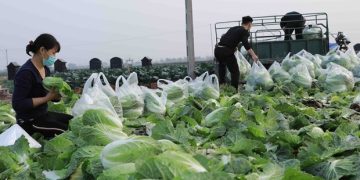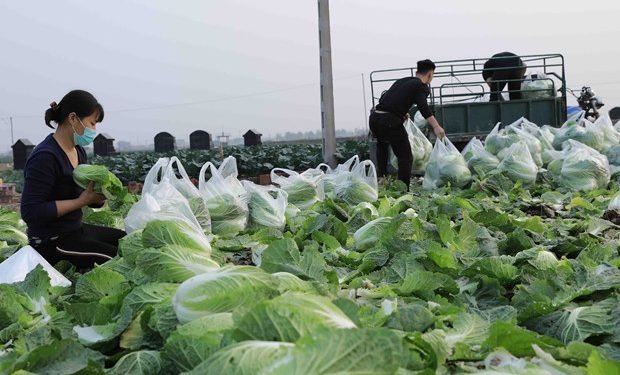#Vietnam # VegetableExport #Agriculture #SustainableFarming #GlobalMarket #FoodSecurity #CultivationStrategies #TradeBarriers #EconomicGrowth #MinistryofAgriculture #RuralDevelopment
Vietnam, a key player in the global vegetable market, is poised for a significant leap in vegetable exports. According to the Ministry of Agriculture and Rural Development’s approved project, the country anticipates its vegetable export revenue to soar between 1-1.5 billion USD by 2030. This ambitious target aligns with the overall goal of ensuring national food security, maintaining food safety and hygiene standards, and fostering community health.
As of now, Vietnam boasts an estimated nationwide vegetable production of 23-24 million tonnes, with 1-1.3 million tonnes earmarked for processing. To achieve the outlined objectives, the project emphasizes the development of safe and concentrated vegetable growing areas with traceable origins. By 2030, the national vegetable cultivation is expected to cover 1.2-1.3 million hectares, with 360,000-400,000 hectares dedicated to safe and concentrated production.
The focal point of the initiative is the creation of integrated production chains, from cultivation zones to processing and consumption. Provinces and cities are urged to attract investments in agriculture, with an emphasis on building sustainable practices and fostering growth. The cultivation of processed vegetables, including tomatoes, cucumbers, chili, potatoes, and leafy greens, is set to play a pivotal role in achieving these targets.
For the domestic market, the strategy involves supporting enterprises, cooperatives, and households in establishing brands for safe vegetables. This includes linking these brands with cultivation zone codes and geographical indications. Diversification of distribution channels through trading platforms, supply-demand connectivity, exhibitions, and trade promotion activities is also on the agenda.
In the realm of exports, the focus is on not only maintaining traditional markets but actively expanding into new ones. Proactive negotiations to eliminate trade barriers are deemed crucial, facilitating wider consumption of Vietnamese vegetable products in the global market.
Vietnam’s vision for a thriving vegetable industry marks a significant step towards sustainable farming practices, economic growth, and global market dominance. With a comprehensive strategy encompassing safe cultivation, integrated production chains, and market expansion, the nation is poised to become a major player in the global vegetable trade.































